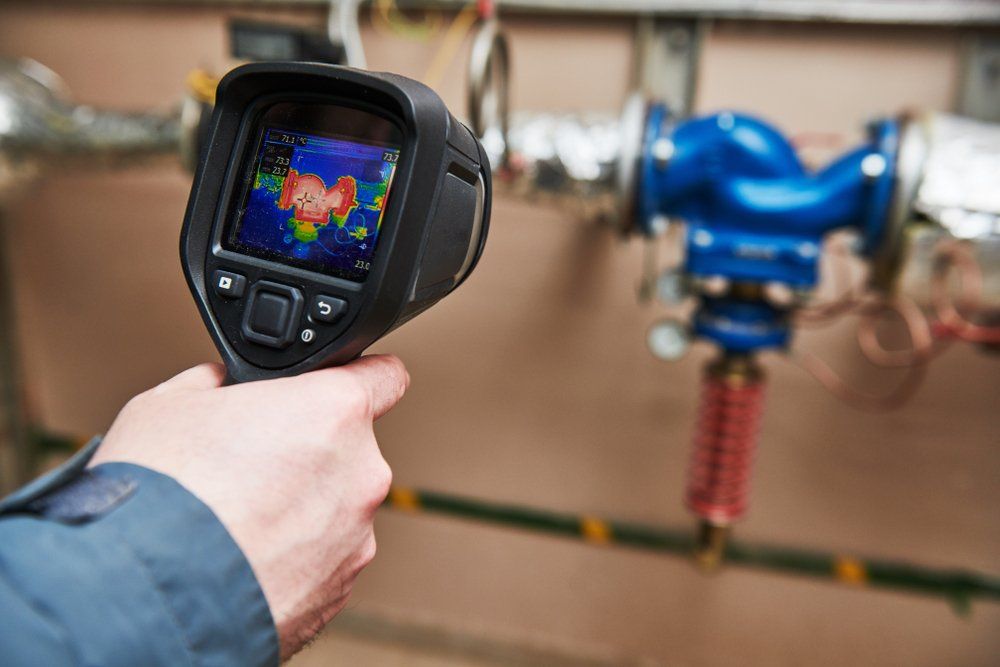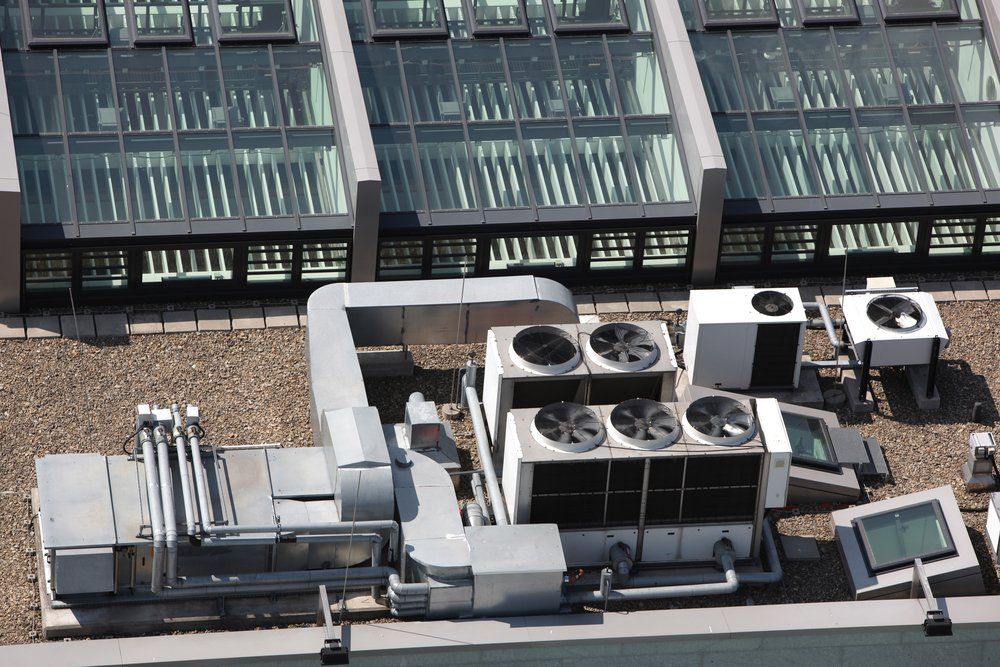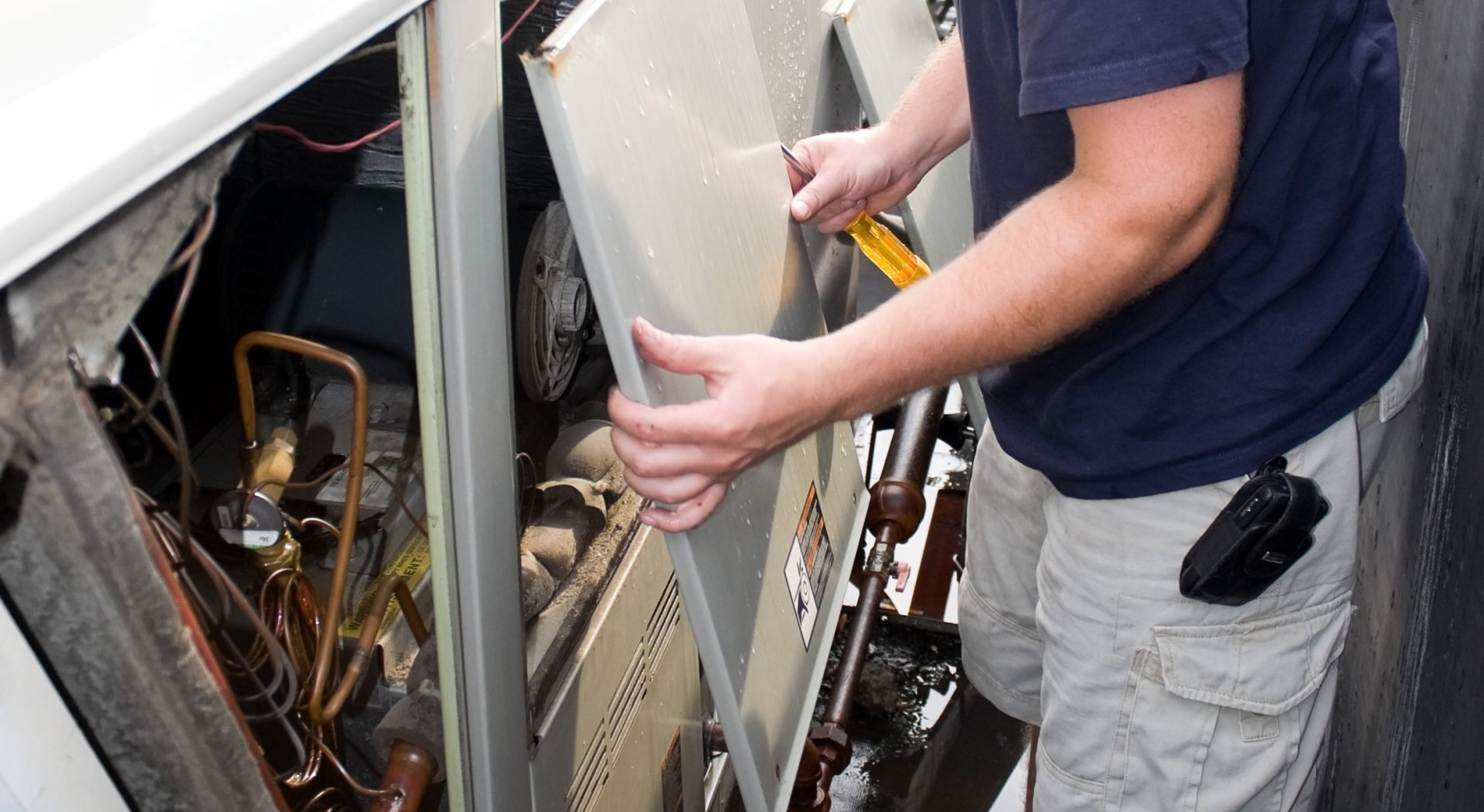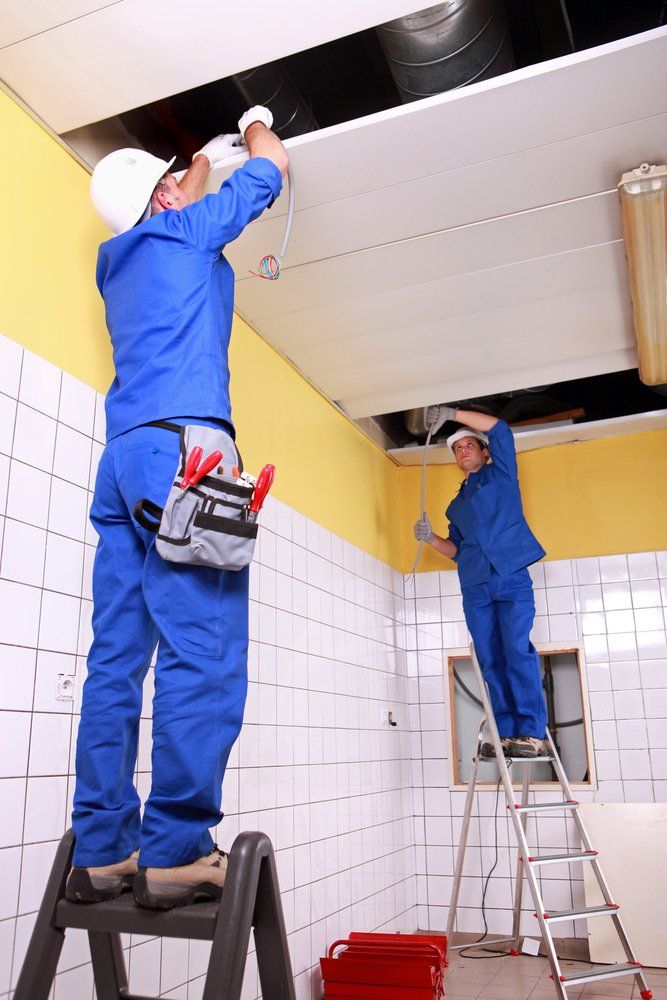The 7 Best Types of Water Heaters
The 7 Best Types of Water Heaters
Owning a water heater is a necessity for most people. There are several different types of water heaters on the market, each with its own set of benefits and drawbacks. In this blog post, we'll take a look at seven different types of water heaters so that you can make an informed decision about which one is right for your home or business.

1. Tankless Water Heaters
Tankless water heaters are becoming more and more popular each year. They offer a number of benefits over traditional tank water heaters, including energy efficiency and a longer lifespan. If you’re considering a tankless water heater for your home, here is some information about the different types available and the benefits they offer.
Tankless water heaters have a number of benefits over traditional tank water heaters, including:
- Energy efficiency – Tankless water heaters are more energy-efficient than traditional tank water heaters, which can save you money on your energy bills.
- Longer lifespan – Tankless water heaters typically have a longer lifespan than traditional tank water heaters, so you won’t have to worry about replacing yours as often.
- More space – Tankless water heaters take up less space than traditional tank water heaters, making them a good option if you don’t have a lot of room in your home.
- Faster hot water – Tankless water heaters provide hot water much faster than traditional tank water heaters, so you won’t have to wait long for a hot shower.
Drawbacks:
- Higher initial cost – Tankless water heaters can be more expensive to purchase than traditional tank water heaters, although they typically save you money in the long run.
- Limited hot water – If you have a large family or use a lot of hot water, you may need multiple tankless water heaters to meet your needs, which can be expensive.
- Requires regular maintenance – Tankless water heaters require regular maintenance to keep them running properly, so you’ll need to be prepared to spend time and money on upkeep.
2. Electric Tankless Water Heaters
Electric tankless water heaters are an efficient way to provide your home with hot showers, baths, and dishes. This type of heating system can be installed in the basement or attic space where it’s easy for pipes underground insulation make connections between fixtures impossible without damaging them at best case scenario - which would cost more than just repairing what was broken! It also takes up valuable living area within these areas that may have once housed other utilities such as telephone wires running next door too close together already.
Electric tankless water heaters are a great option for homes that have a high demand for hot water. They don’t require a tank, so they take up less space, and they can be installed almost anywhere. They also have a lifespan of about 20 years, so you won’t have to worry about replacing them often.
Standard benefits:
- Tankless - don't take up as much space
- Can be installed almost anywhere
- Longevity of about 20 years
- No need to worry about replacing them often
Drawbacks:
- More expensive than other types
- Not as readily available as other types
It's a good idea to invest in an electric tankless water heater if you're looking for improved efficiency. These units use less energy and produce significantly higher temperatures than traditional gas-powered counterparts, which means they can be much more effective at heating large volumes without burning out your home’s plumbing system or wiring! Electric models also allow homeowners like yourself to conveniently control their temperature settings from anywhere with ease; no need to dive into the basement every time there is too much snow outside (or during any other inclement weather).
You'll never again worry about being inconvenienced by low-pressure valves releasing upstream congestion on rivers near cities where many people live; tankless heaters eliminate the need to store and use gallons of heated water intermittently as a storage-tank device does.
3. Gas-Fired Water Heaters
Gas-fired water heaters are an excellent way to keep your home warm during these cold winter months. They're efficient, reliable, and effective at heating large amounts of space with little sustenance required from you or the environment. If you're someone who values a warm home, this may be the best option for you - and with great technological advances in today's market, there are many gas-fired water heaters to choose from.
Gas-fired water heaters are a popular choice for homeowners because they provide a lot of bangs for your buck. They’re less expensive to install and operate than electric water heaters, and they can last up to 15 years.
Standard benefits:
- Heats large spaces quickly and efficiently
- Requires little input or maintenance from you
- Many different models and options to choose from
Drawbacks:
- Can be noisy
- Require venting to the outside, which can be difficult in some cases
- Can produce harmful emissions if not properly vented
When considering a new water heater, you need to be aware that gas-fired units have been getting some pretty high marks for their efficiency. Not only will they provide peace of mind knowing there's no flammable fuel involved but also in regards to operating costs and environmental friendliness--a tradeoff not many people thought possible before now!
4. Solar Water Heaters
They are a great way to save money on your energy bills!
The solar panel in front of this water heater absorbs light from outside and converts it into heat. As long as there's plenty of sun shining, so you can have hot showers without paying too much for electricity or gas at home - all while not having any harmful chemicals that might harm people living nearby when they escape through their skin (which is what happens with conventional fossil fuel burning).
Standard benefits:
- Save money on energy bills.
- No harmful chemicals are released into the air.
- They can be used in any climate.
Drawbacks:
- They require a lot of suns to work properly.
- They can be expensive to install.
Solar water heaters are a great way to reduce your carbon footprint and save money on your energy bill. They work by using the sun's energy to heat water, which is then stored in a tank. Solar water heaters are most effective in warm climates, but they can be used in any climate.
5. Heat Pump Water Heaters
The heat pump water heater is one of the most efficient and environmentally friendly ways to keep your home warm. The unit uses electricity or gas as its energy source, but it also has an advantage over other types because you can regulate temperature using just one control. This can be a great choice for people who want to save money on their energy bills.
A heat pump heats water by using the natural warmth of your home. It’s very quiet too- much less Noisier than an electric or gas water heater because there's no fan needed to move air around inside that generates sound as well. it works great if You live In areas where winters tend to be cold enough so it gets below freezing at night frequently throughout the entire day-long periods but If That doesn't happen often then consider himself/herself lucky since most people don't get enough sunlight during those days anyway due To shading from clouds etcetera, so the heat pump won't be able to function properly.
Heat pump water heaters use electricity to move heat from one place to another, instead of generating heat themselves. This makes them more efficient than traditional electric water heaters, and they can also be used to cool your home in the summer. However, they can be more expensive to install than other types of water heaters.
Standard benefits:
- Environmentally friendly
- Easy to regulate temperature with one control
- Can be used to cool your home in the summer
- Energy efficient
Downsides:
- Can be more expensive to install than other types of water heaters
- Might not work well in areas where winters are cold enough to get below freezing frequently inexpensive to install, and they provide a lot of hot water quickly. They also work well in colder climates.
They are one of the most efficient and environmentally friendly ways to keep your home warm. They use electricity or gas as their energy source, but they also have an advantage over other types because you can regulate temperature using just one control. This can be a great choice for people who want to save money on their energy bills.
6. Condensing Water Heaters
A condensing water heater is a water heater that has a higher efficiency than traditional water heaters. This type of water heater captures more heat from the exhaust gas, which means that it can use less energy to heat your water.
More energy-efficient than conventional water heaters, they're ideal for homes where you want to cut down on your heating bills.
The condensing type of unit works by removing the vast majority (around 90%)of moisture from inside its metal enclosure before releasing the hot vapor into your home's space; this process not only saves money but also reduces greenhouse gas emissions because it eliminates a lotion drying cycle.
Standard benefits:
- More efficient than traditional water heaters
- Captures more heat from the exhaust gas
- It consumes less energy to heat your water
- Ideal for homes where you want to cut down on your heating bills
- Reduces greenhouse gas emissions
- Eliminates a lotion drying cycle.
Drawbacks:
- It tends to be more expensive than traditional water heaters.
- They require regular maintenance to keep them running efficiently.
- Finally, they can be difficult to install in older homes.
The average home has a water heater that lasts 12 years. If you're planning on staying in your house for the next decade, it's time to invest some money into upgrading! Energy efficiency is an important factor when looking at which type of model will best suit what needs.
7. Indirect Water Heaters
Indirect water heaters are an excellent and cost-effective way to keep your home warm. The Indirect Water Heater is not just for homes that have limited space. It can also be used to heat large buildings, such as schools or hospitals.
It might sound like an inefficient way of heating your home but the indirect water heater has many benefits over other types: First, off it doesn't require any special installation since all you need are some empty pipes where they meet up with plumbing fixtures near walls; secondly, this kind won’t damage anything because there isn't even fire involved in its process (so no worries about Hieronymous HIM); finally plushest most importantly- these devices cost less money than traditional ones do to run!
Standard benefits:
- Keep your home warm.
- Cost-effective.
- No installation is needed.
- Won't damage anything.
- Low cost to run.
Downsides:
-It can be more expensive to install than other types of water heaters.
-They can be less efficient than other types of water heaters.I
-It can only be used in certain areas where the climate is conducive to using an indirect water heater.
The majority of people don't realize that there's a much cheaper alternative than installing drains or pipes under the floorboards, which can be very expensive in some cases! Indirect Heating uses convection technology, so you won’t have any trouble with burning food at holidays because it doesn't direct all its efforts towards heating one specific area like most traditional furnaces would do - instead, this type will distribute warmth throughout every room through general circulation systems rather than focusing on just 1 big space. This is a great choice if you have allergies because the heating system will not blow dust and other allergens around the house.
An indirect water heater is a water heater that uses a boiler to heat your water. This type of water heater is ideal for homes that use a lot of hot water, such as large families or homes with multiple bathrooms.
Summary
Water heaters are an important part of any home or office. They provide hot water for baths, showers, laundry, and dishes. Not sure which type of water heater is best for you? Check out our list of the seven best types of water heaters and see which one fits your needs. If you’re in the market for a new water heater, we can help with that too – just give us a call!




